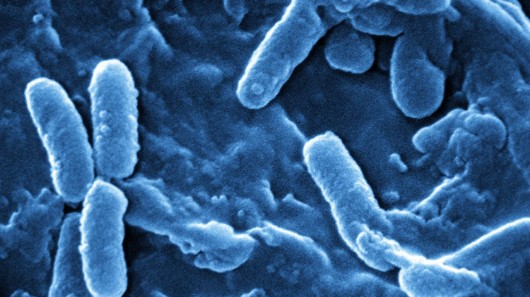
Blue light has been used to kill potentially-lethal Pseudomonas aeruginosa bacteria (pictured) in the skin and soft tissues of lab mice
Over the past few years, blue light has allowed us to understand heart problems, control brain functions, and activate muscle tissue. Now, another biomedical function can be added to its list Ė because itís known to have antimicrobial qualities, itís been used to stop infections of the skin and soft tissues.
According to the American Society for Microbiology, such infections are the second most commonly-encountered type in private practice, and the most common type presented in emergency rooms. Unfortunately, as bacterial resistance to antibiotics grows, other means of stopping these infections are increasingly needed.
In a proof-of-concept study, led by Dr. Michael R. Hamblin of Massachusetts General Hospital and Harvard Medical School, an array of blue LEDs was used to treat infected burns on lab mice. More specifically, the blue light was used to selectively eradicate potentially-lethal Pseudomonas aeruginosa bacteria in the animalsí skin and soft tissues.
The results of the study were promising. All of the light-treated mice survived, while 82 percent of the untreated control group died. Additionally, unlike bacteria-killing ultraviolet light, the blue light wasnít harmful to the animalsí own cells.
Although more research needs to be conducted, existing knowledge of blue lightís antimicrobial qualities suggests that bacteria would be less likely to develop a resistance to it than to antibiotics.
A paper on the research is scheduled to be published in the journal Antimicrobial Agents and Chemotherapy, and can currently be accessed online.
Source: American Society for Microbiology
Copyright © gizmag 2003 - 2013 To subscribe or visit go to: http://www.gizmag.com